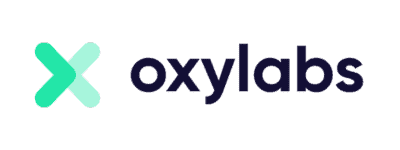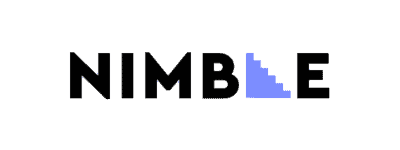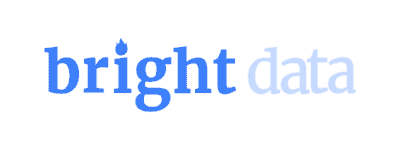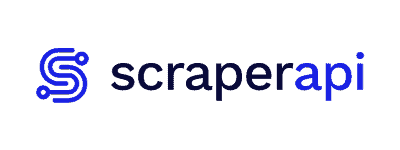The Best Web Scraping APIs for 2026
Web scraping APIs are easier to set up and maintain than custom scrapers but still require basic programming skills. In scraping, an API provider plays a crucial role – it sends a request to your target website on your behalf and returns the data. Meanwhile, you don’t have to worry about technical details like proxy management, headless browsers, or anti-detection measures.
If you’re looking for the best web scraping API providers, this page will help you to choose the perfect fit from a curated list.
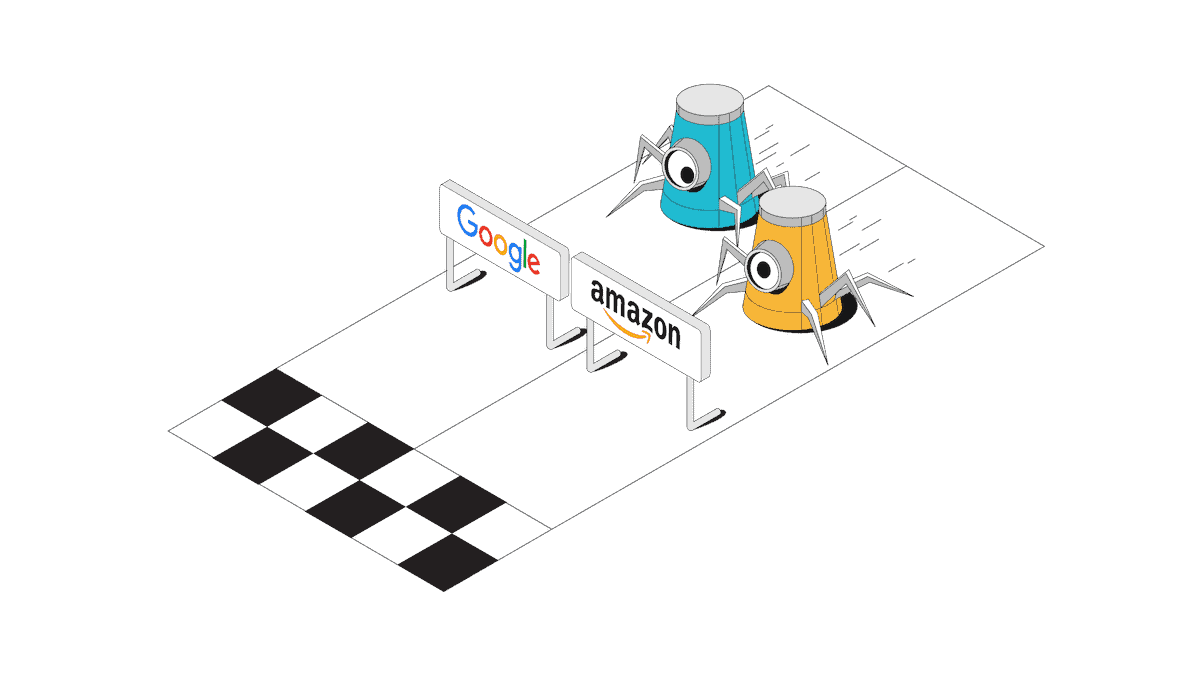
The Best Web Scraping APIs of 2026:

1. Zyte API – the best overall web scraping API.

2. Oxylabs – performant and feature-rich web scraping APIs.

3. Decodo (formerly Smartproxy) – best value for quality web scraping APIs.

4. Nimbleway– AI-based web scraping API.

5. Bright Data – the most versatile web scraping APIs.
What Is a Web Scraping API?
There are several ways to go about web scraping, and one of them is to use an API (Application Programming Interface). It’s like a remote web scraper – you send a request to the API with the URL and other parameters like language, geolocation, or device type. Then, the API accesses the target website, downloads the data, and returns to you with the results.
Let’s say you want to get product listings from Amazon. Building a scraper can take a lot of time and resources – you’ll have to write a script, choose and set up a proxy server, and rotate headers. A web scraping API handles these tasks for you. Some API services include parsing functionality, so you’ll get structured results in formats like JSON or CSV. However, specific features will vary depending on the service.
Why Pay for an API?
- It overcomes website protection mechanisms for you. The scraper handles IP blocks, CAPTCHA challenges, and other website protection mechanisms.
- You won’t need to maintain a scraper yourself. API services have an economic interest in keeping the infrastructure robust. This involves ensuring high uptime and keeping the scraper up to date with changes in bot protection and page layouts.
- Some scrapers return structured data. Many specialized web scraping APIs have the ability to parse data, so you don’t have to clean it up yourself. Usually, you can get the data in JSON, and some services offer CSV format.
- They perform very well. APIs are designed to handle large amounts of requests, making them well-suited for large-scale tasks. Furthermore, they’re capable of rendering JavaScript, which can be challenging for custom-built web scrapers.
- They offer high flexibility. With an API, you can keep your infrastructure lean and scale up or down as needed. Some providers don’t even require signing a contract, which makes their scrapers perfect for one-off or irregular projects.
How We Made the List
To identify the best web scraping APIs, we tested a bunch of companies that offer such services and presented the results in our scraper API research. Most of these companies are well-known in the industry, so you can be sure that you’ll get a quality service.
We compared their features, scraping performance, parsing capabilities, and cost-effectiveness. Our benchmarks focused on the most popular websites like Google, Amazon, G2 and others.
| Zyte | Oxylabs | Decodo | Nimbleway | Bright Data | Scraper API | |
| Avg. success rate | 98.38% | 98.50% | 96.29% | 95.48% | 97.90% | 67.72% |
| Avg. response time | 6.61 s | 13.45 s | 10.91 s | 13.01 s | 22.08 s | 15.39 s |
The Best Web Scraping APIs
1. Zyte
The best overall web scraping API.

Available tools
general-purpose scraper

Success rate
98.38%

Response time
6.61 s
- Geolocation: 150+ countries
- Pricing model: credit-based, based on optional features
- Pricing structure: pay as you go, subscription
- Support: available via an asynchronous contact method
- Free trial: $5 platform credits for 30 days
- Pricing starts from: custom
Zyte is a veteran in the web scraping industry. It offers a robust scraper – ZyteAPI – that can target any website.
The API supports 19 locations, but Zyte has a system that automatically matches the location to the target URL. The provider mainly focuses on developers but also tries to attract beginners with a no-code interface.
Zyte is one of the few providers offering a TypeScript API for scripting browser actions. Enterprise clients can write scripts to perform tasks ranging from hovering over elements to entering individual symbols. Since the API doesn’t offer a built-in parser, there is an option to build one manually by creating extraction rules with CSS selectors.
During our tests, Zyte demonstrated exceptional performance – it was the fastest scraper on most target websites, such as Amazon and Google. The provider also had one of the best success rates among the providers we tested.
Zyte uses custom pricing – it dynamically calculates the price per request based on the website’s difficulty and the features you select. There is a dashboard tool to help you estimate the request cost. Overall, it’s a cost-efficient service for basic scraping configurations. However, if you require features such as JavaScript rendering, the price increases sharply.
For more information and performance tests, read our Zyte API review.
2. Oxylabs
Performant and feature-rich web scraping APIs.

Available tools
general-purpose scraper with dedicated endpoints for various websites

Success rate
98.50%

Response time
13.45 s
- Geolocation: 150+ countries with ZIP for Amazon, city & coordinates for Google
- Pricing model: based on successful requests
- Pricing structure: subscription
- Support: 24/7 via live chat, dedicated account manager
- Free trial: 7-day trial with 5K results
- Pricing starts from: $49 for 24,500 results ($2/1K)
Oxylabs provides a multipurpose web scraping API that can be used to scrape e-commerce, travel, entertainment, and other websites. It’s one of the few providers that managed to beat the best anti-bot systems with over an 85% success rate and a good response time.
The API includes features like scheduling tasks and crawling, which is rare to find. It’s relatively customizable: you can select a location, device, and pass custom headers. The provider supports three integration methods: a proxy server and two API formats with optional asynchronous delivery, which allows you to get results in batches.
The scraper has a parsing functionality for any website, and you can get the results in JSON format. If you can’t find a parser for your website, you can write custom parsing instructions using XPath and CSS selectors.
Oxylabs also has a feature called OxyPilot – an AI-driven assistant that simplifies the process of setting up web scraping tasks. It generates code automatically for making scraping requests and creating parsing instructions. You can use the assistant in the API Playground – a place for users to experiment and adjust scraping configurations.
The pricing model is based on successful requests, and you can request a 7-day free trial. However, since Oxylabs doesn’t offer pay-as-you-go, the starting price can be a bit high for some.
For more information and performance tests, read our Oxylabs review.
3. Decodo (formerly Smartproxy)
Best value for quality web scraping APIs.

Available tools
general-purpose, SERP, e-Commerce, social media scraping APIs

Success rate
99.83%

Response time
5.05 s
- Pricing model: based on successful requests
- Pricing structure: subscription
- Support: 24/7 support via chat or email
- Free trial: 7-day free trial with 1K results or 14-day money-back guarantee
- Pricing starts from:
– Web Scraping API:Core subscription starts from $29 for 100K requests ($0.29/1K); Advanced subscription – $50/25K requests ($2/1K)
– Social Media Scraping API: $50/25K requests ($2/1K requests)
-SERP and eCommerce Scraping APIs: Core subscription starts from $29 for 100K requests ($0.29/1K); Advanced subscription – $30/15K requests ($2/1K)
Beyond its excellent proxy infrastructure, Decodo offers four great-performing scraping APIs: social media, SERP, e-commerce, and general-purpose APIs.
Decodo covers key features for small to large-scale scraping, including proxy rotation, anti-detection techniques, and JavaScript rendering.
Using dedicated scrapers, the APIs can parse major websites and fetch results in JSON format. Integration options include both API and proxy server modes, with the results returned via an open connection.
Performance-wise, Decodo strikes a good balance between a high success rate and a fast response time. Yet the provider focuses not only on performance – it’s also very user-friendly and backed by award-winning customer support.
You can build and test requests using Postman collections or GitHub code examples in popular languages like Python, PHP, and Node.js.
The platform also includes an API playground for live testing and ready-made templates for social media scraping.
There are two Decodo pricing plans available: Core and Advanced. The Core plan, starting at $0.29 per 1,000 requests, is budget-friendly but limited to eight locations and doesn’t include advanced features like task scheduling and JavaScript rendering. The Advanced plan gives you access to all features at a competitive price.
For more information and performance tests, read our Decodo review.
4. Nimbleway
AI-based web scraping API.

Available tools
general-purpose scraper with dedicated endpoints for various websites

Success rate
95.48%

Response time
13.01 s
- Geolocation: 150+ countries with state & city targeting
- Pricing model: credit-based
- Pricing structure: pay as you go, subscription
- Support: live chat on the dashboard, email, Slack, Microsoft Teams, and Discord
- Free trial: available
- Pricing starts from: $3 per 1K results or $150 for 150 credits
Nimbleway has one web scraping API – Web API. It’s a general-purpose scraping API.
The provider’s scraper includes dedicated endpoints for some websites like Amazon, and is among the better options on the market.
Nimbleway uses AI trained on HTML to extract data from various web pages. The provider allows users to create custom schemas using simple, natural language instructions. These schemas automatically correct errors and include reusable IDs. Additionally, the scraper features parsing capabilities powered by Nimble Skills, which use contextual data profiles optimized for specific website target groups like e-commerce. You can get structured data directly to your S3 or GCS buckets.
During our latest research, Nimble performed particularly well on social media platforms but faced difficulties with Cloudflare’s anti-bot system (G2 website) – the success rate dropped significantly, and the response time was slower compared to competitors.
Pricing is credit-based, placing Nimbleway in the higher price range. However, you can choose between pay-as-you-go or monthly plans for slight savings.
For more information and performance tests, read our Nimbleway review.
5. Bright Data
The most versatile web scraping APIs

Available tools
general-purpose API with dedicated endpoints for various websites, SERP API

Success rate
97.90%

Response time
22.08 s
- Geolocation: 150+ countries with city & ASN targeting, coordinates for Google
- Pricing model: based on successful requests
- Pricing structure: pay as you go, subscription
- Support: 24/7 via live chat, tickets, dedicated account manager
- Free trial: 7-day free trial for companies
- Pricing starts from:
– Scraper API: $1 for 1K results or $499 ($0.85/1K)
– SERP API: $3 for 1K results or $499 ($2.55/1K)
Bright Data offers two APIs for data collection: Scraper API and SERP API. Scraper API is a general-purpose tool that can target various websites, and SERP API is designed for scraping and parsing major search engines.
Scraper API comes with many dedicated endpoints for the most popular websites. It’s a cloud-based service that includes features like bulk request handling, data discovery, and automated validation. Additionally, the scrapers are able to parse data.
SERP API is designed to get structured data from Google products like search, images, and maps, as well as other search engines such as Bing and Yahoo. The API supports country, city, browser, and device selection. The documentation is biased toward proxy-like integration, but you can also send queries in an API format and receive data in batches.
Though we didn’t test Bright Data’s Scraper API, the provider’s SERP API showed almost perfect success rate, though it was a bit slower than the alternatives.
Bright Data has an interactive playground that simplifies the setup and use of any web scraping API. The services are catered to advanced users, but Bright Data has great documentation.
In terms of pricing, Bright Data has two options: subscription or pay-as-you-go. The first one is cheaper per request, but you have to commit to at least $499/month. The provider keeps the same price for all configurations and websites. However, it’s not very efficient for unprotected websites, since you’ll overpay.
For more information and performance tests, read our Bright Data review.
6. ScraperAPI
Cost-efficient web scraping API for scraping unprotected websites.

Available tools
general-purpose scraping API

Success rate
67.72%

Response time
15.39 s
- Geolocation: US & EU or ~70 countries after spending $300+, ZIP code for Amazon
- Pricing model: credit-based
- Pricing structure: subscription
- Support: e-mail
- Free trial: 7-day free trial with 5K credits
- Pricing starts from: $49 a month for 100K API credits
ScraperAPI is a general-purpose scraper for various websites.
The scraper lets you adjust request headers, establish sessions, and scrape using premium proxies if needed. It’s also capable of parsing Google Search, Shopping, and multiple Amazon properties by passing an additional parameter. However, ScraperAPI has relatively limited location coverage if you’re unwilling to spend hundreds of dollars.
ScraperAPI supports four integration methods: a proxy server, SDK, and two API formats (open connection and asynchronous). Asynchronous delivery allows you to get results in batches. What’s more, it has great documentation for major programming languages: Python, NodeJS, PHP, Ruby, and Java.
Performance-wise, ScraperAPI was quite performant with e-commerce websites like Amazon. However, it struggled with websites like G2, Allegro, and Lowe’s. Not only did it struggle to open them, but it was slow as well.
The tool’s pricing starts from $49/100,000 API credits. The system uses a different number of credits for specific website groups (like search engines and social media), premium proxies, or JavaScript rendering. The rate can differ by up to 75 times based on the target. This makes the service very efficient for scraping simple websites and expensive for protected targets that require JavaScript.

